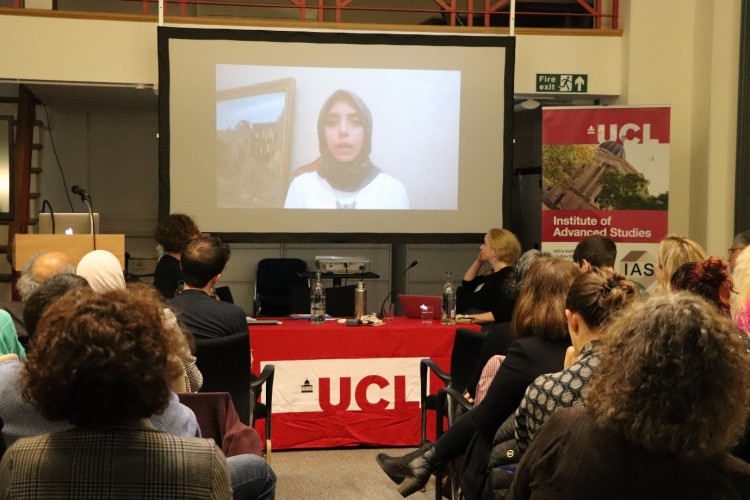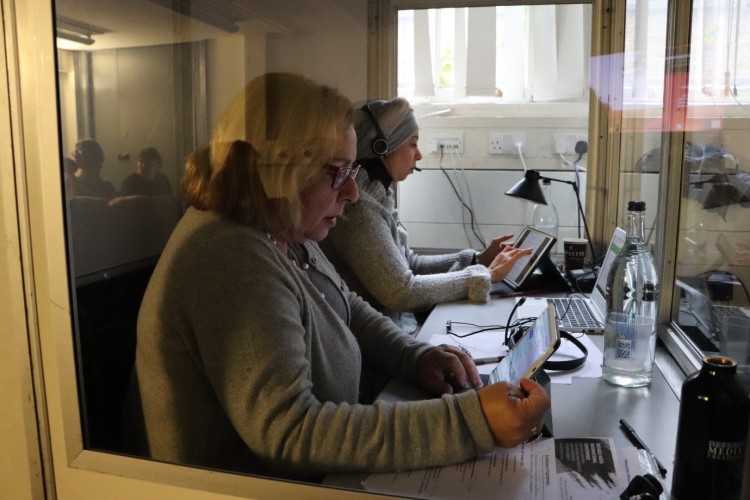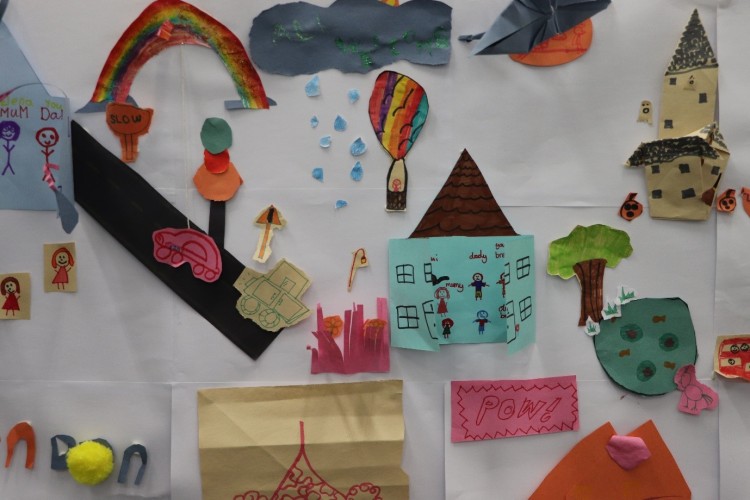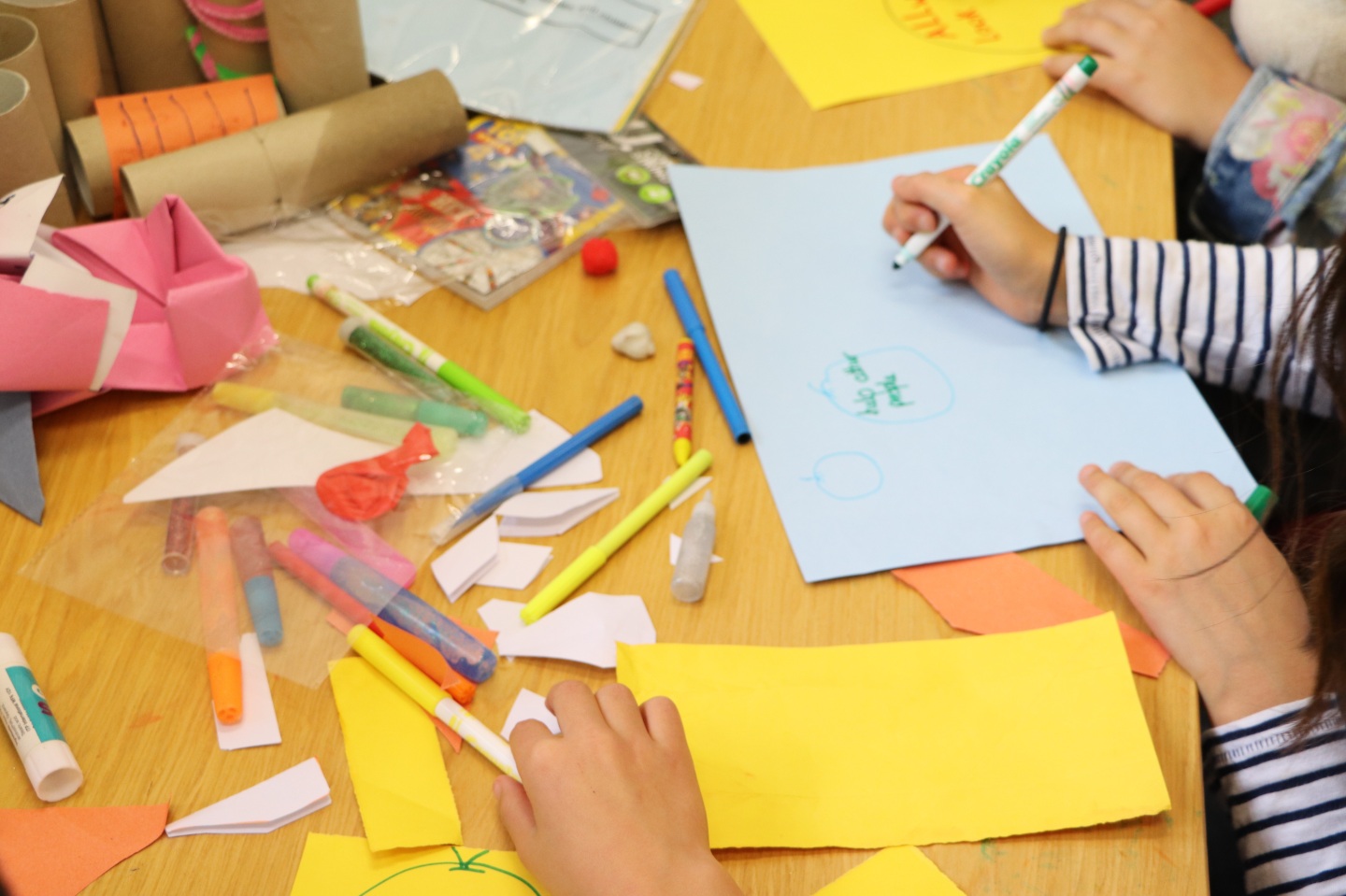In this blog post Sorcha Daly and Aydan Greatrick share some of the challenges they experienced and the practical solutions they found during the planning and organising of the Refugee Hosts’ International Conference, ‘Without Exception: the politics and poetics of local responses to displacement.’ A key theme at the conference was the politics and ethics of knowledge production and how, where and by whom dominant humanitarian discourse, theory and practice in relation to forced migration is produced. With this in mind, conference planning focused on how to ensure one of the key terms of the conference title ‘without exception’ could be incorporated into each aspect of conference planning. The diversity of speakers, panelists and other participants was centralised throughout by the convenors, but was also challenged by structural barriers such as the UK immigration system. Planning also considered issues such as access for parents and carers, those on low incomes, and those unable to attend the conference physically. Ethical suppliers and sustainability were also considered.
You can view live-stream videos of the conference here.
‘Without Exception’ – Equal Space for Knowledge Production
By Sorcha Daly, Refugee Hosts Communications Coordinator and Aydan Greatrick, Refugee Hosts Project Coordinator
On the 24th and 25th of October 2019, Refugee Hosts convened and live-streamed an international conference – ‘Without Exception: the politics and poetics of local responses to displacement.’ The conference presented a series of keynote lectures, panels, roundtables, and artistic interventions, exploring a number of Refugee Hosts’ key themes, to challenge, inform and debate dominant humanitarian discourse, the politics and ethics of knowledge production, and current theory and practice in relation to forced migration.
Planning for the conference took place over several months and included a focus on how we could incorporate the title’s key terms, ‘without exception,’ into each element of the event. In particular, we wanted to acknowledge and address the lack of visibility of academics and researchers, communities and individuals from the ‘global South,’ in events focused on humanitarian discourse about the ‘global South,’ organised and convened by academics and researchers from the ‘global North,’ in the ‘global North.’ Indeed, the conference, and the Refugee Hosts research project more broadly, critically explore issues such as the politics of knowledge production in refugee-related research and what roles decolonial and Southern approaches to knowledge production can, could and should play in refugee research.
However, ensuring that these critical considerations were factored into the development of the conference was challenging. Convening the conference within a ‘Northern’ institution and city presented numerous structural and bureaucratic barriers that sometimes frustrated our attempts to address the inequalities found in knowledge production and dissemination.
This blog details such challenges, and how we addressed them as we organised various aspects of the conference. Through a focus on diversity, accessibility and sustainability we aimed to reflect, throughout the organisational process, the key themes of the conference, and of the Refugee Hosts project more broadly.
Diversity of Contributors and Disciplines
‘Highly engaging and inspiring speakers. Thank you for sharing your thoughts with us!’ Conference Attendee
The conference had a clear and robust budget for travel and accommodation expenditure. Keynote speakers, chairs and panel presenters were invited from multiple countries (and particularly countries of the ‘global South’) and from multiple disciplines, research and policy backgrounds. We were also mindful of gender balance across keynote speakers, chairs and panel presenters. Refugee Hosts’ researchers and colleagues based in the projects’ nine local field sites in Lebanon, Jordan and Turkey, were invited to speak and share their research and their personal and creative responses to forced displacement.
We provided letters, confirming their invitation to the event, to support visa applications, along with a budget to address the cost of applying for a visa. Unfortunately, despite these efforts, the visa applications of one Palestinian and two Syrian colleagues were refused by the Home Office. We were able to facilitate the presentation of one of our Syrian colleagues, Refugee Hosts’ Researcher Dima Al-Hamadmad, at the conference via Skype video. However, it is clear that the hostile environment and discrimination within the UK’s immigration system, as noted in Prof. Fiddian-Qasmiyeh’s opening remarks, continues to exclude many important voices from discourse, in particular those of the ‘global South’. This was one of the main reasons we decided to live-stream the conference, with Arabic translation, in addition to organising future, connected, conferences in the ‘global South.’

Live-streaming and translation
‘Thank you for the conversations. Really appreciated the translation! Would love to see academic initiative partnerships and conferences happen in the Middle East and Africa!’ Conference Attendee
The conference was translated from English to Arabic by two expert interpreters. Both the English and Arabic audio were live-streamed, allowing over 1,500 people to engage with the conference online during the two days, some of whom had been unable to attend in person due to the UK’s immigration rules.
We were also able to retain the audio and video of the conference for later dissemination, uploading the full two days to YouTube in panel sections, allowing people to engage with the content and conversations. The number of people watching continues to grow as recordings from the conference are publicised and disseminated through the project website and social media platforms.
Enabling this to happen was, however, not a straightforward process. Although UCL considers itself a ‘global University’ we were surprised to find that there was not a single translation booth available to hire on campus. We had to embark on an extensive process of procuring a translation booth company, from scratch, for this one-off event and securing the translation booth became a very arduous process when taking into account UCL’s financial and bureaucratic processes. The time spent on this alone highlights institutional blind spots around language accessibility, where securing basic equipment became a difficult and sometimes infuriating process.
The gratification of having this set up on the day was, however, immensely rewarding, especially in light of the feedback and engagement we had with the online Arabic live-stream. This example demonstrates the practical steps that institutions can and should take to help facilitate knowledge exchange. Challenging structural barriers can be a complex endeavour, but it would certainly help to have an in-house translation booth for use at similar fora and convenings.
‘And also thank you for live-streaming it in Arabic. Sadly, many academics working on forced displacement forget that they (sic) work should primarily aim at advocating for refugees (who are not necessarily fluent in English). Refugees should be seen as actors and not subjects #RHIC2019’ Conference Attendee (via live-stream)

Bursaries for conference attendees
‘Thanks for your help with my attendance at this. The keynotes and panels were very illuminating and it was extremely well organised.’ Conference Attendee & Bursary Recipient
Although registration was free for the event, we were aware that there are other financial restrictions that can prevent people from attending conferences, including level of income and the cost of travel or accommodation needed to attend. We offered a number of small travel and accommodation bursaries. People who had registered for the event were invited to fill out an application form which was reviewed by the team. Bursaries were awarded based on an agreed set of criteria, including level of income and how their research, work, or general interest aligned with the main aims and topics of the conference.
Childcare Provision and a Child Friendly Policy
‘Also many thanks for organising childcare throughout the two days. This must be a prerequisite for all work done out of town and out of work hours. #RHIC19’ Conference Attendee
Free childcare for anyone participating in the conference, including staff members and volunteers, was offered. We advertised for childcare workers from among the UCL Early Childhood and Development Programme students and alumni, and worked with them to develop a children’s programme that aligned with some of the main themes of the conference. However, there are also mobile crèches and other childcare services that can come and set up childcare facilities at a venue of your choice.
Additionally, conference attendees who did not manage to register (information was collected regarding children’s ages, dietary needs/allergies, disabilities) their children in time were welcome to access the main conference venue with their children.
‘At first I was apprehensive because it was new to me, but the girls were so professional, warm and focussed on the children having fun in creative ways with arts and crafts and all sorts of wonderful games as well as safeguarding of the children.’ Conference Attendee

Catering
‘I will start with the food, because it managed to bring the content of the conference into an embodied context, managing to ‘bridge’ the physical and cultural distance often experienced when presenting research on migration in such highly privileged, frequently emotionally and politically sanitised, academic spaces.’ Conference Attendee.
We wanted to ensure that catering at the conference reflected the ethos and approach of the Refugee Hosts project. UCL use Sodexo as a preferred provider for catering and hospitality services at the University. However, in light of industrial action taking place at the University relating to the unequal treatment of Sodexo staff, in comparison to ‘in-house’ hospitality staff, and the systemic failings of Sodexo to provide appropriate and ethical systems and structures both for the people in their ‘care’, and for the staff they employ, we decided to opt for different catering and hospitality suppliers. Once we had provided a clear justification for accessing alternative catering provision rather than utilising UCL’s prefered providers, we sourced catering from two alternative organisations. Proud Kitchen is a social enterprise offering employment opportunities through catering services to refugee and migrant women and provided a hot lunch at the conference. The Syrian Sunflower is a catering and educational organisation started by a human rights activist and refugee from Syria. They provided pastries to accompany teas and coffees during breaks.
Publicity and Sustainability
The event was publicised on our website and via the Refugee Hosts Facebook and Twitter accounts and via our email networks. Tweets regarding the live-streaming and video links were written and posted in Arabic. We considered merchandising options, which included water bottles, pens, and canvas bags; however, we also wanted to make the conference as sustainable as possible, and so opted to remove as much unnecessary plastic as we could. Attendees were provided with a canvas bag with shortened versions of the conference programme, which aimed to reduce the use of paper whilst providing a basic outline of information. A longer version of the brochure was sent electronically to all attendees prior to the conference, and was made accessible via the Refugee Hosts website.
Support for Other Needs and Future Considerations
We were somewhat limited in our choice of venue as we did not have a budget for a large fully accessible space. However, during the registration process for the event we asked a number of questions relating to specific needs for diet, disabilities and childcare. The event was held in the UCL Institute of Advanced Studies Common Room and Forum, on the first floor of the Wilkins Building, UCL, accessible via stairs and lift, with accessible toilets on the same floor and on the floor below. Hearing loops were not available at the venue but there were alternative arrangements that could have accommodated attendees who are hard of hearing. The live-stream was also played in an adjoining room for those who found it difficult to hear speakers in the main hall. Other considerations such as the provision of gender neutral washrooms or the provision of smaller rooms to accommodate prayer, breastfeeding or other needs were unfortunately not available to us.
Concluding reflections
Ensuring that the conference was organised in a way that stayed true to the aims and approach of the Refugee Hosts project was a complicated process. Practicing the principles of “Without Exception” was inevitably frustrated by diverse structural barriers our team faced, from the unavailability of basic translation equipment to the larger challenge of racist immigration policies.
Ensuring that we can create an equal space for knowledge production is, in this context, difficult. Nevertheless, by critically focusing on diversity, accessibility and sustainability we were able to convene a conference that was as participatory as possible. This also means recognising where we had failed, and the barriers that continue to exist. This is a conversation that must continue, recognising that the content of any conference is just as important as the practice of organising one.
With special thanks to our Conference Assistant, Sabine De Graff and our conference volunteers, Tilda Ferree, Asia Hart-Eason, Noor Attar, Nehal Husnaien, Joanne Hayati & Gulazor Gulmamadova.
**
You can access the Conference Archive here.
You can access the individual discussion panels via the links below:
Disrupting Humanitarian Narratives
Writing Displacements into Literature
Hosting, Hospitality and Displacement
The Politics and Ethics of Knowledge Production in Refugee Situations
Translation, Literature and Precarity
Locating Faith in Humanitarian Practice and Local Community Response
Rethinking Community, Rights and Displacement: Theory and practice
Featured image: Creating ideas of home. (c) L. Harsch, 2019

2 comments